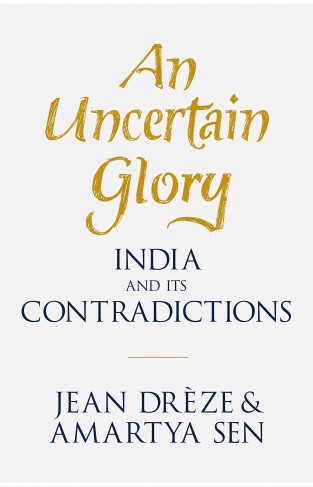From two of India's leading economists, Jean Drèze (Hunger and Public Action) and Nobel Prize-winner Amartya Sen (The Idea of Justice), An Uncertain Glory is a passionate, considered argument for the need for a greater understanding of inequalities in India, despite economic development.
When India regained independence from colonial rule in 1947, it immediately adopted a firmly democratic political system, with multiple parties, freedom of speech and extensive political rights. The famines of the British era disappeared, and steady economic growth replaced stagnation, accelerating further over the last three decades to make India's growth the second fastest among large economies. Despite a recent dip, it is still one of the highest in the world.
Maintaining rapid yet environmentally sustainable growth remains an important and achieveable goal for India. Drèze and Sen argue that the country's main problems lie in the disregarding of the essential needs of the people. There have been major failures both to foster participatory growth and to make good use of the public resources generated by economic growth to enhance people's living conditions; social and physical services remain inadequate, from schooling and medical care to safe water, electricity, and sanitation. In the long run, even high economic growth is threatened by the underdevelopment of infrastructure and the neglect of human capabilities, in contrast with the holistic approach pioneered by Japan, South Korea and China.
In a democracy, addressing these failures requires not only significant policy change, but also a clearer public understanding of the abysmal extent of deprivation in the country. Yet public discussion in India tends to be constricted to the lives and concerns of the relatively affluent. This book presents a powerful analysis not only of India's deprivations and inequalities, but also of the restraints on addressing them - and of the possibility of change through democratic practice.



